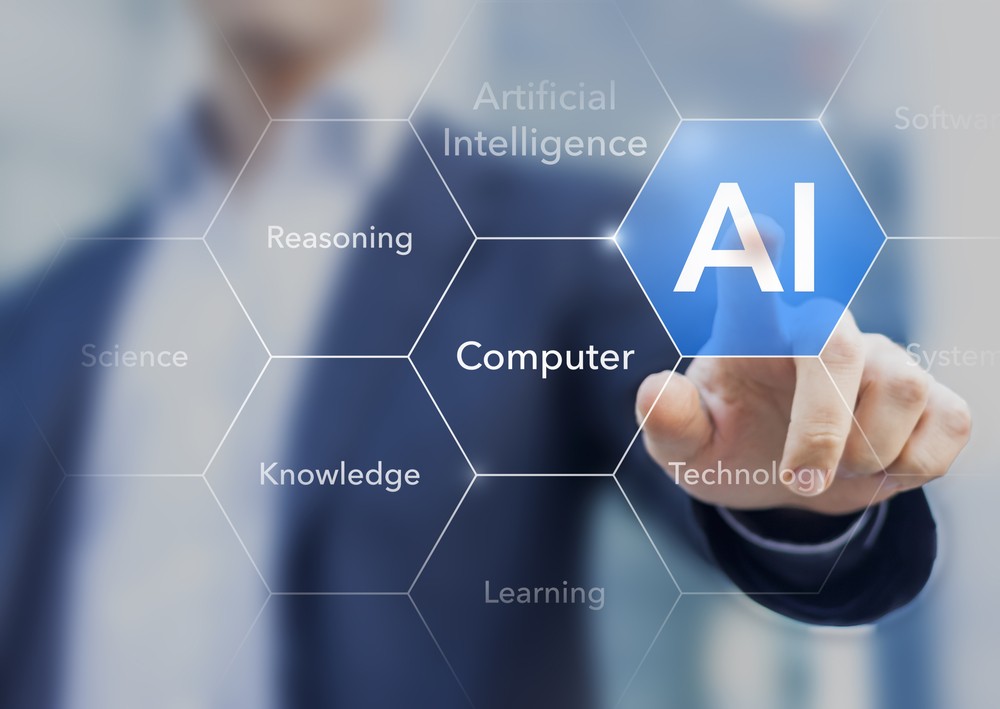Artificial intelligence (AI) will have a significant impact on companies and their business models over the next five years—85 percent of CEOs surveyed in PwC’s 22nd Annual Global CEO Survey are convinced of this. But with only 33 percent having dipped their toe into AI for ‘limited uses’, and fewer than one in ten using it on a wide scale, the range of applications has been limited so far. However, this is soon set to change.
Despite the use of AI being a distant dream for many businesses, the current maturity of intelligent technologies and the expectations of enterprise resource planning (ERP) systems in particular—to support innovations—have fundamentally changed business demands. ERP systems need to lose their cumbersome heritage and open up to third-party applications, in order to help businesses benefit from technological innovations more quickly. This is a demand that ERP providers and user companies must meet in equal measure, as set out in the following four expectations for AI-enabled ERP.
Expectation 1: Flexible process for the introduction of intelligent technologies
Intelligent ERP is not based on a specific technology, but on the ability of an ERP system to access a variety of technologies for intelligent functions. In most companies, this starts with automating repetitive routine processes in the background. In time, other functionalities are added—such as machine learning and deep learning for error detection in production, predictive analytics for demand planning and forecasts, natural language processing for voice-controlled systems in production or in the warehouse, and learning algorithms for autonomous systems.
This approach ensures the cost-effectiveness of innovations and simplifies their acceptance in everyday work. On the role of intelligent ERP, IDC research manager, Alexandros Stratis, states, “An assistive user interface is key in enabling today‘s knowledge workers to become the digital knowledge workers of tomorrow, and though true conversational interfaces are a future goal, the quality of the interaction will improve over time, enabling flatter organisations, a fluid work environment, and goal-oriented and redefined back-office processes.”
ERP systems must therefore be able to integrate with innovative applications, and grow according to a company’s requirements.
Expectation 2: Innovations as scalable web services
Intelligent systems require a significant amount of data to identify trends, patterns, and correlations, as well as the ability to learn and draw conclusions. The IT systems required for this only make economic sense as cloud or web services. This has two positive consequences—access to intelligent technologies is open to companies of all sizes, and adoption is no longer a question of IT budget. Technologically, however, it requires modernisation of an ERP system that is based on a corresponding industry platform in the software architecture, such as Microsoft .NET, in order to access Azure's resources seamlessly.
Having an ERP platform, which communicates with—in this case—Microsoft Azure makes it comparatively easy to connect a company’s own processes with intelligent cloud services and AI resources, such as Intelligent Edge and Cognitive services. This can provide Internet of Things (IoT) ‘Plug and Play’ capabilities—to connect IoT devices seamlessly to the cloud—or AI functionality, such as machine learning for decision support or Language Understanding Intelligent Service (LUIS). This is even possible if taking a hybrid cloud approach for on-premises ERP installations, or as part of a pure cloud ERP environment.
Expectation 3: Domain expertise for faster deployment of intelligent systems
With a Forbes Insights survey suggesting that 44 percent of respondents from the automotive and manufacturing sectors consider AI as ‘highly important‘ to the manufacturing function in the next five years, and almost half (49 percent) stating it as ‘absolutely critical to success‘, domain expertise will be crucial to realising this expectation.
Even though access to intelligent technologies via web services makes it easier for companies to take advantage, they are not necessarily an out-of-the-box solution for industrial use. It is important to work with a supplier that understands industry specifics, as well as the semantics of ERP data. The domain expertise of an ERP provider for certain industry requirements or functional areas is decisive for intelligent systems to reliably and quickly achieve the required optimisation in processes.
Expectation 4: Significant gains in operating efficiencies
The current volatile economic climate means that managers are currently concentrating on their own optimisation. According to PwC's 22nd Annual CEO Survey, 77 percent of CEOs across the globe are committed to driving revenue growth through internal measures to improve operational efficiency. Organic growth is paramount, with new markets or strategic alliances currently playing a subordinate role.
With companies setting high standards when it comes to established IT systems in terms of efficiency, the expectations and innovative advantages that ERP modernisation must deliver are also great. When planning to upgrade an existing ERP system, fundamental modernisation is often considered as preparation for a higher level of automation through intelligent technologies.
The future of intelligent technologies
ERP has traditionally been responsible for organising information, generating reports, and visualising critical real-time data via dashboards. However, today’s businesses want intelligent technologies to be able to recognise trends and patterns, make recommendations for action, take into account different interrelationships, and automate complex processes.
The degrees of freedom of modern ERP platforms—that are available as on-premise and cloud models—will help meet this demand. ERP provides current system requirements to achieve associated process improvements, at the same time as giving the prerequisites required to take steps towards the use of intelligent technologies.




